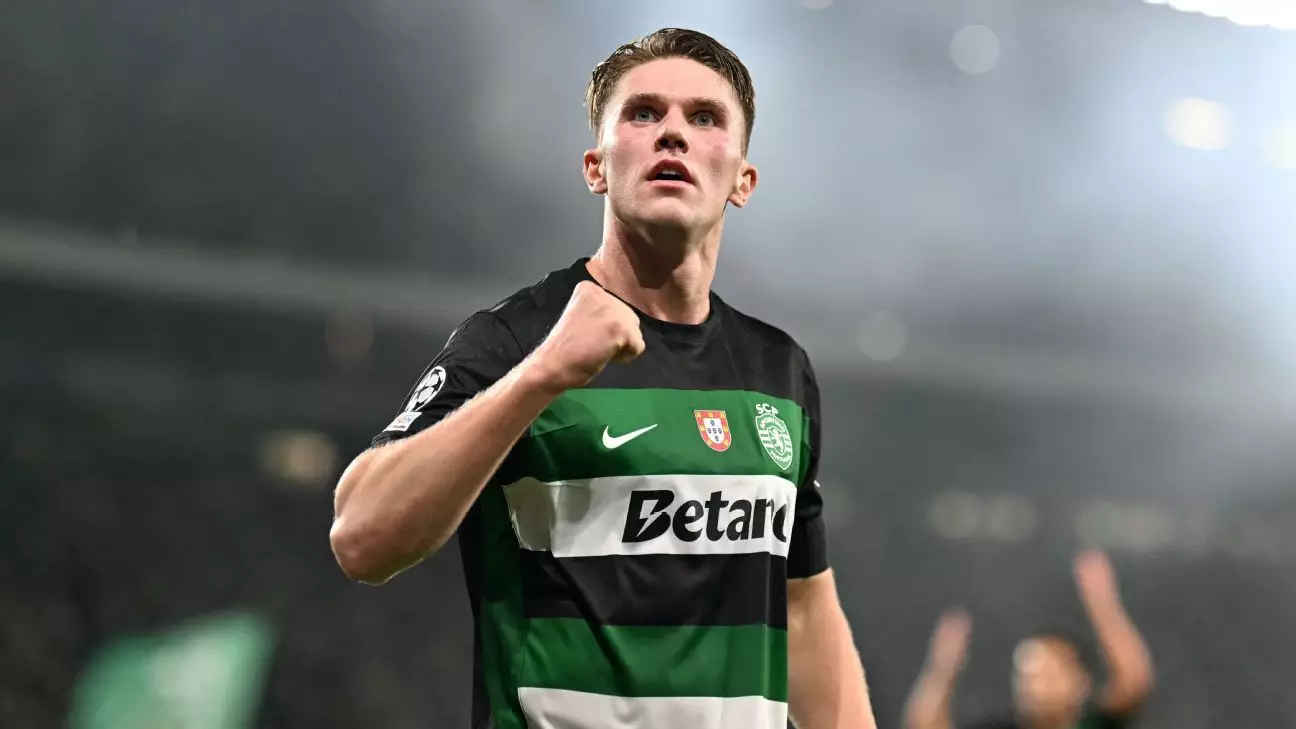The world of football transfer speculation is ever-evolving, with clubs continuously vying to strengthen their squads. Recent reports indicate a flurry of activity as teams like Manchester United and Bayern Munich eye potential acquisitions. Among the most notable names in the fray is Viktor Gyökeres, a Sporting CP striker whose resume features 54 goals in just 52 games last season—an astounding achievement in a demanding league. Such statistics make him a highly coveted asset, and it seems that Manchester United is gearing up to make a serious bid. This shift reflects a strategic approach to rebuilding their roster after a period of financial consolidation.
United’s cost-cutting measures reportedly resulted in a £41.6 million drop in operating expenses, granting them a more robust transfer budget. While clubs often find themselves constrained financially, United’s strategy seems to be paying dividends. They are not only looking at premier strikers but have also made significant moves, such as acquiring Matheus Cunha from Wolves for £62.5m. As clubs become increasingly astute in their financial dealings, we may see more teams adopting similar strategies to remain competitive.
The Dynamics of High-Profile Departures and Arrivals
While the pursuit of fresh talent is essential, the departures of existing players can spark equally captivating narratives. Take, for instance, Rafael Leão from AC Milan—his desire to leave the club has not gone unnoticed, especially with Bayern Munich expressing interest. The prospect of such a transfer raises important questions about loyalty versus ambition in professional football. Will players remain loyal to their clubs amidst lucrative offers from powerhouse teams? In Leão’s case, a €70 million price tag does not seem out of reach for Bayern, suggesting that the tug-of-war for his signature could transition from mere gossip to complete negotiations.
This duality of arrivals and departures showcases the complexity of modern football. Many clubs, knowing that they can capitalize on talents like Leão, are now operating in a world where retaining star players can be as challenging as signing new ones. As this dance unfolds, fans and insiders alike are captivated by the unfolding drama.
Emerging Young Talents and Strategic Moves
Apart from well-known stars, clubs are recognizing the importance of investing in emerging talents. The recent agreement between Chelsea and Borussia Dortmund regarding Jamie Gittens reflects a more strategic approach to signings, prioritizing youth with high potential. Gittens’ seven-year contract signals a long-term vision rather than a short-term fix, emphasizing a trend that could define football’s future.
This youth-centric strategy is becoming more apparent, with clubs like Newcastle United intensifying their pursuit of Joâo Pedro from Brighton & Hove Albion, viewed as a key player to pair with Alexander Isak. The idealistic view of football clubs assembling a squad of youthful talents, complemented by a few seasoned veterans, is not merely a utopia but increasingly becoming a reality across several top-flight leagues.
The Tug-of-War of Transfer Fees
Player valuations are soaring, and clubs are becoming increasingly mindful of the financial implications of these deals. The market dynamics have evolved into a bidding war, as seen with Real Madrid’s pursuit of Álvaro Carreras from Benfica, where the two clubs appear to be at an impasse over an €8 million discrepancy. This scenario is indicative of a broader trend where clubs are playing hardball, unwilling to compromise on their financial assessments. The ripple effects of these negotiations can have profound implications not only for the clubs involved but also for the future of player transfers.
The spirit of competition is palpable as stakeholders negotiate hard, and clubs are leveraging their financial capabilities to navigate these turbulent waters. It begs the question of whether clubs are prepared to break the bank for a player or operate within stricter limitations, particularly when navigating the choppy waters of an inflated market.
Coping with the Pressure of Financial Fair Play
Football’s financial landscape is becoming ever more scrutinized, particularly in relation to Financial Fair Play regulations. Clubs such as Newcastle United are reportedly frustrated with perceived “Saudi tax” on transfer fees due to their wealthy owners. Navigating these financial regulations while also being competitive presents a unique set of challenges. Teams must now build competitive squads without falling afoul of financial guidelines, leading to a paradox where clubs are forced to spend strategically rather than simply pursuing star signings.
As player values are continuously inflated and the competition for top talents fiercer than ever, one thing is clear: clubs must adapt and innovate or risk being left behind in this relentless transfer market. It poses challenges, but it also opens avenues for creativity and strategic negotiations that could redefine what successful squad building looks like in modern football. The coming months promise to be thrilling as teams aim to strike a balance between ambition and pragmatism. As fans, we can only sit back and watch the drama unfold.

